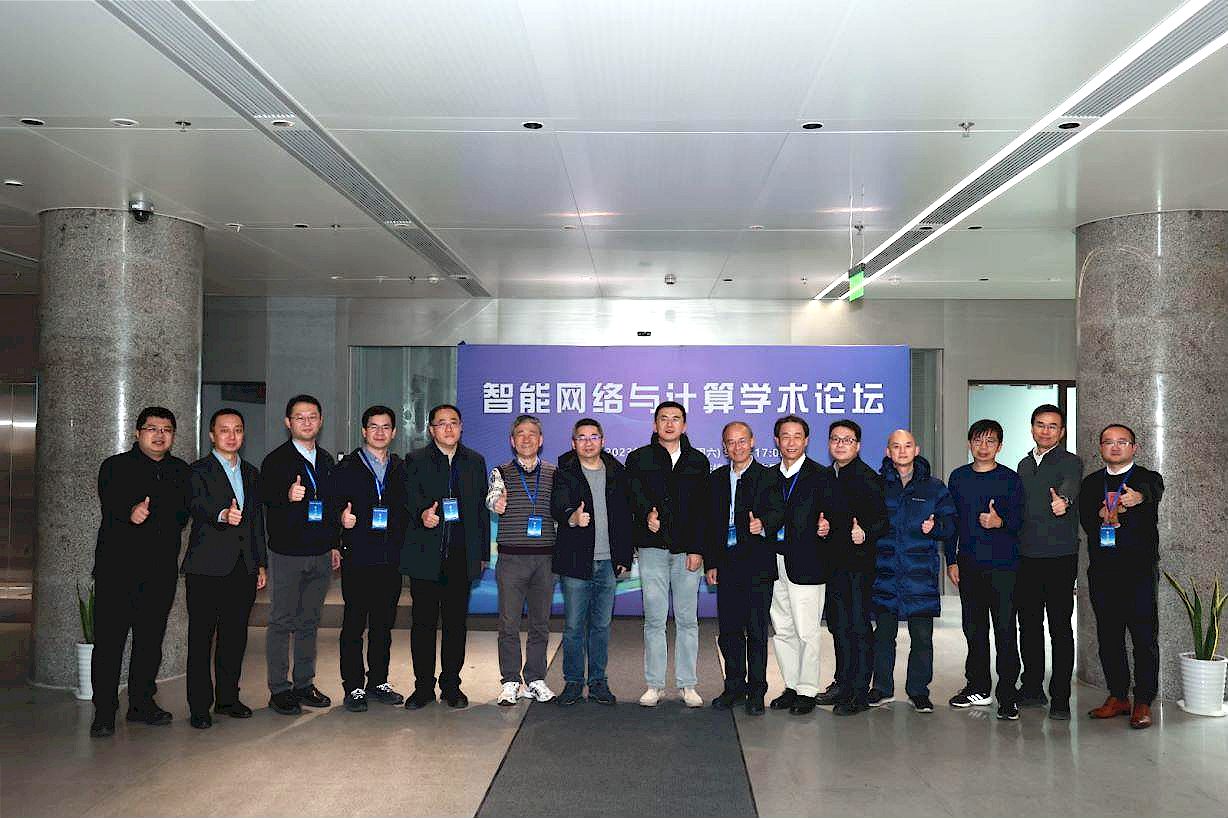On December 16, 2023, the high-profile Intelligent Network and Computing Academic Forum was successfully held in the lecture hall of Yifu Building, Handan Campus, Fudan University. The forum was organized by the Communication Branch of the Chinese Society of Electronics and received strong support from Fudan University's School of Computer Science and Technology, School of Information Science and Engineering, Intelligent Network and Computing Center, and Nantong University's School of Information Science and Technology. The event brought together leading experts from academia and industry to discuss the latest developments and challenges in the field of intelligent networking and computing.
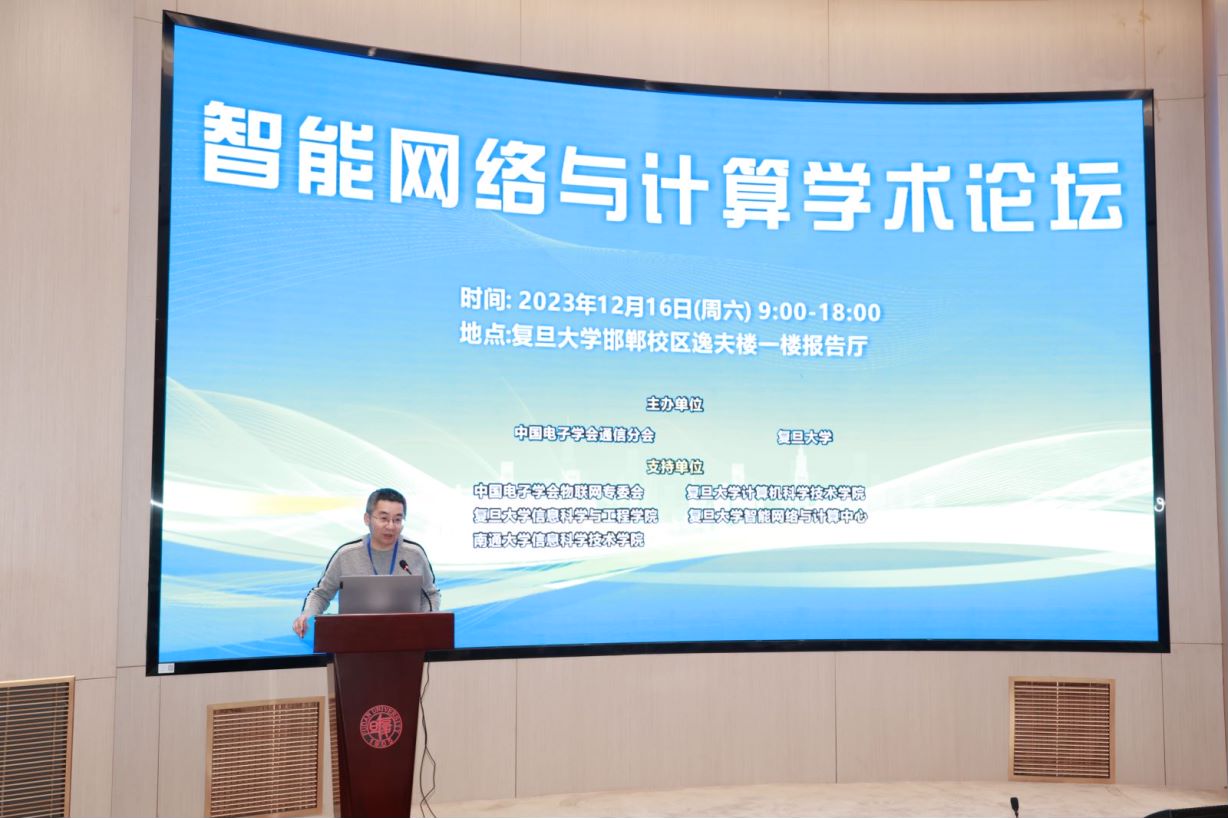

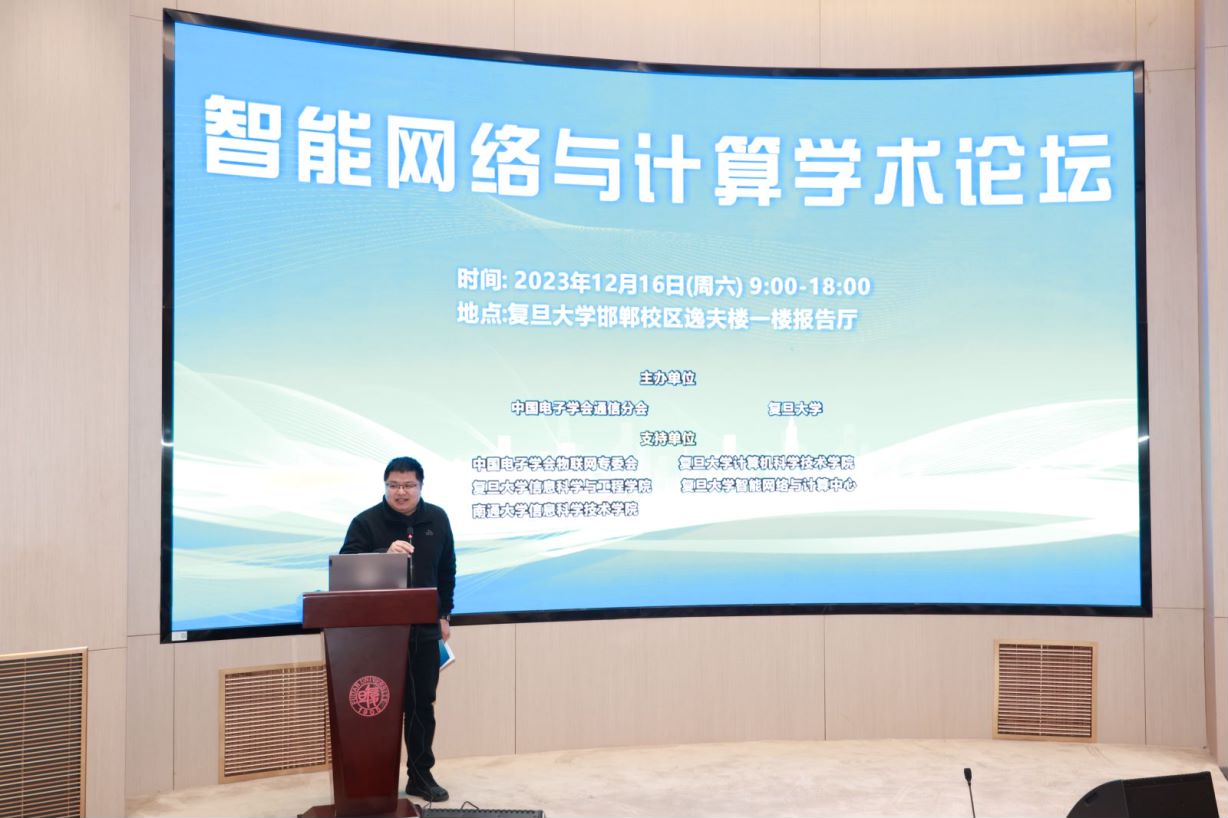
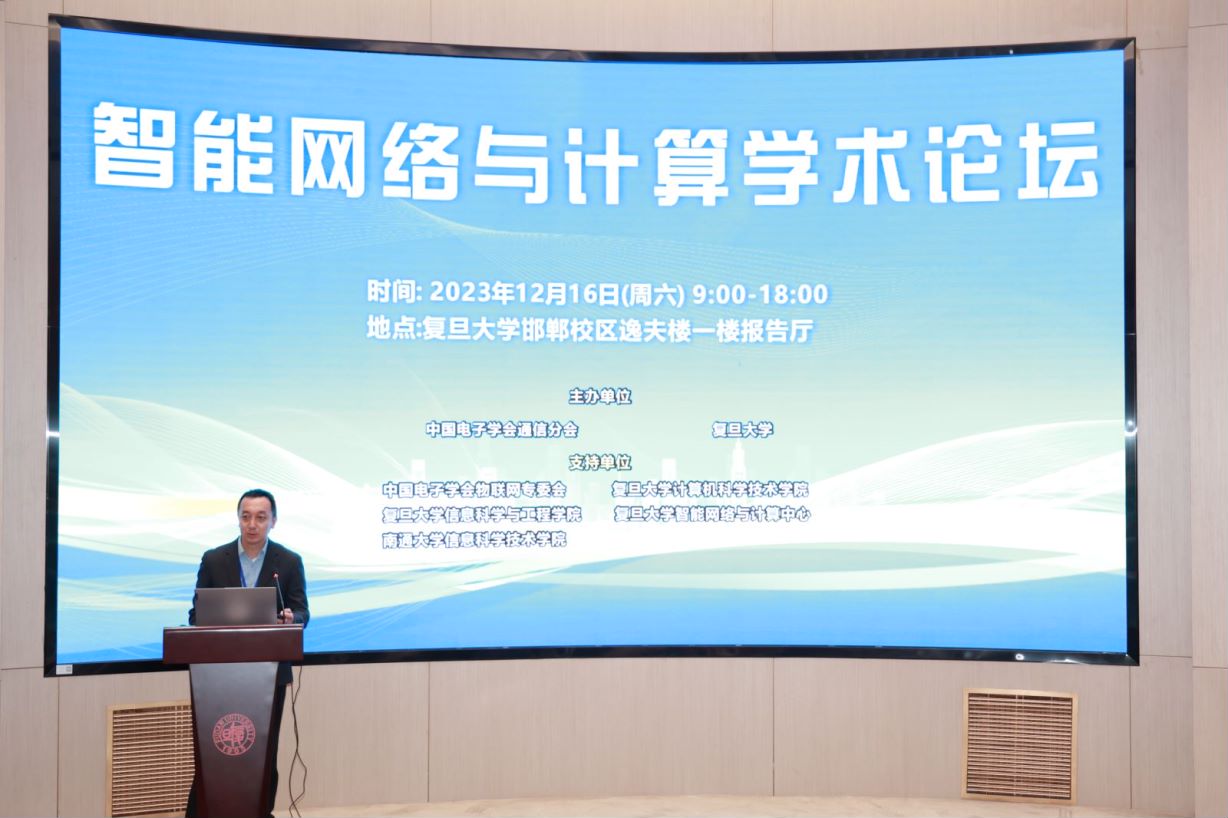
At the beginning of the forum, the opening ceremony of the conference was presided over by Professor Gao Yue, School of Computer Science, Fudan University. The conference was honored to invite Jinshi, Vice President of Southeast University, Yang Min, Dean of School of Computer Science, Fudan University, and Zhan Yiqiang, Vice Dean of School of Information Science, Fudan University, to attend and deliver speeches. They warmly welcomed the guests and looked forward to the development prospects of intelligent network and computing.
Expert presentation session: Professor Fong Yuk-kwong from the City University of Hong Kong opened the presentation with a speech on Building Multi-dimensional Resource Networks for Smart Cities using Vehicles. Professor Fang detailed the background of smart city development and the key role that vehicle networks play in it. His concept of multi-dimensional resource network provides a new perspective for the construction of smart cities.
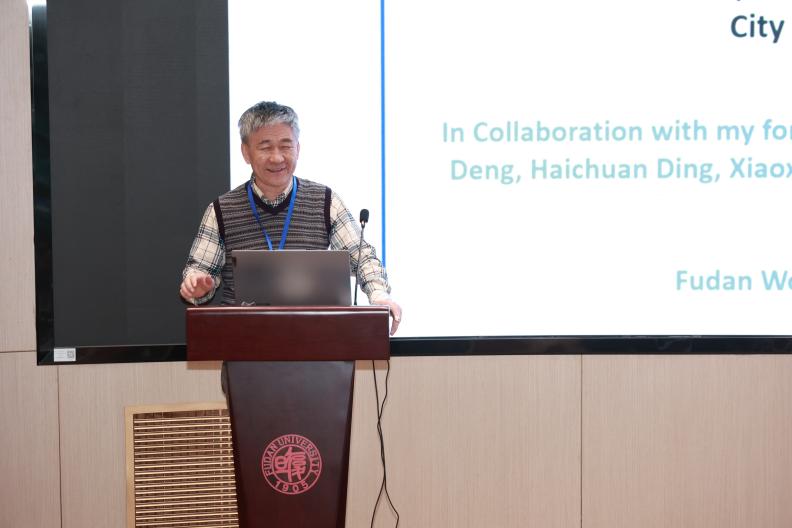
Then, Professor Nei Kato from Tohoku University in Japan gave a wonderful talk entitled Multi-AP Coordination Methods on Emerging WLANs. Professor Kato provided an in-depth analysis of the future trends of wireless LAN technology and proposed innovative solutions for the multi-access point (AP) coordination mechanism. His speech triggered a heated discussion among the audience, showing the new trend of wireless communication technology.
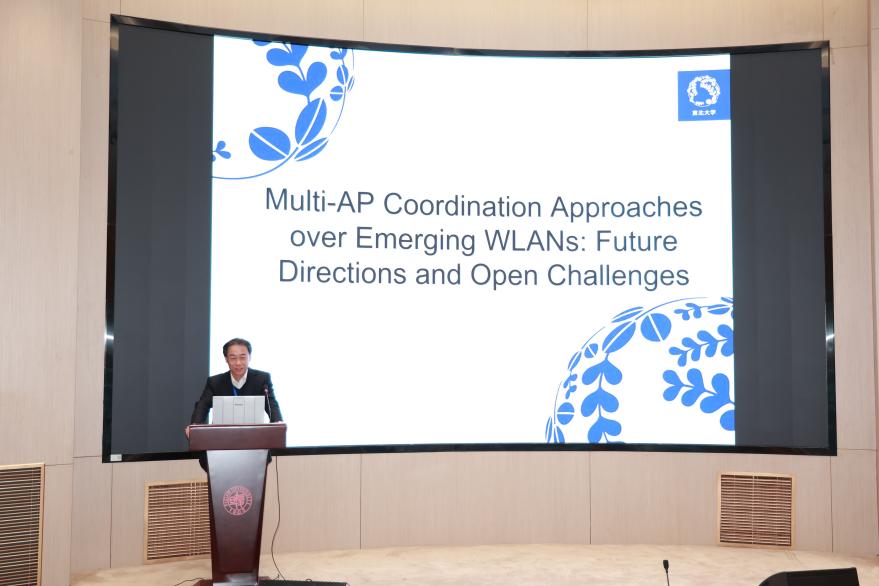
Ding Rui, a researcher from China Satellite Network Group, focused on the vision and technical outlook of the development of heaven and earth integrated communication network. Dr. Ding deeply analyzed the concept, development history and future application scenarios of the world fusion communication network, pointing out that this innovative technology will bring revolutionary changes to the communication industry.
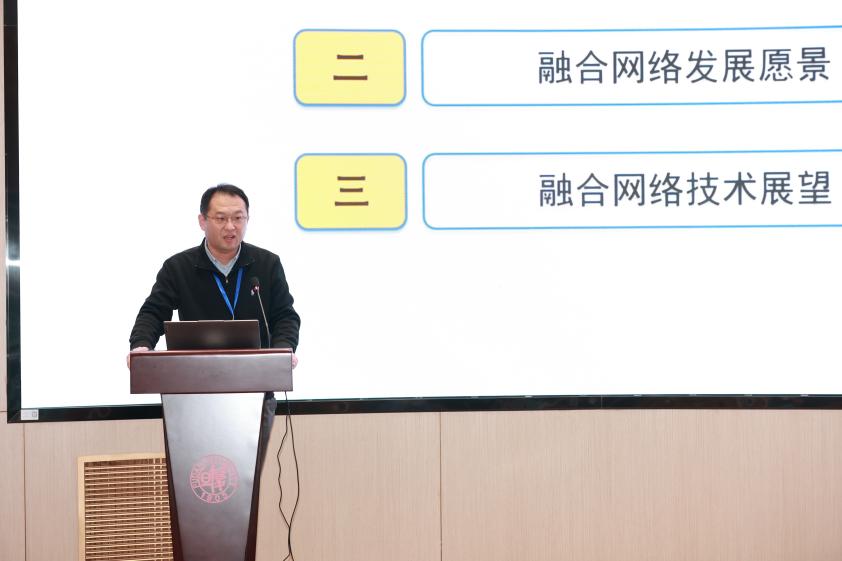
Professor Fan Pingzhi of Southwest Jiaotong University then shared his latest research results in the field of vehicle networking with the title of Vehicle Networking Content Distribution and Low Latency and High Reliable Communication. Through case studies, Professor Fan demonstrated the great potential of the Internet of vehicles in enabling efficient content distribution and low-latency communication.
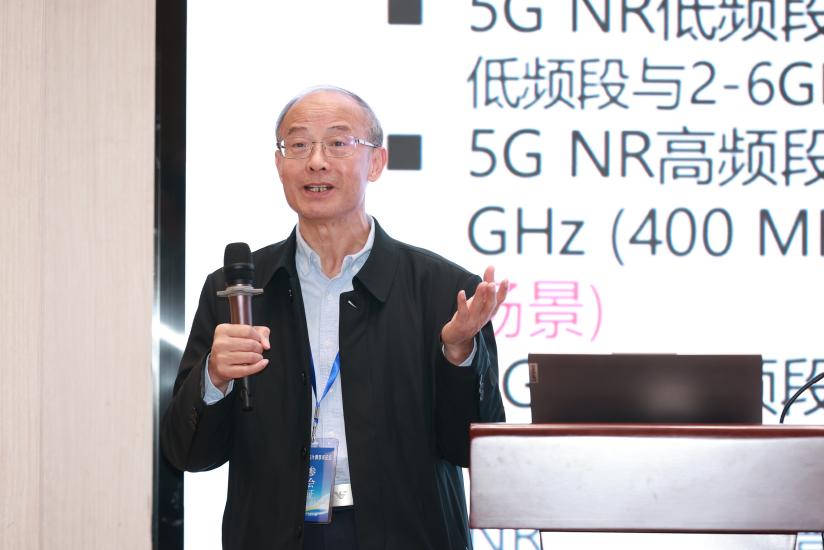
Professor Zhang Qinyu of Harbin Institute of Technology (Shenzhen) focuses on intelligent awareness systems and key technologies of space electromagnetic situation. Professor Zhang discussed in depth the design principles and implementation methods of space electromagnetic situational awareness systems, especially innovative technologies in intelligent perception and data processing.
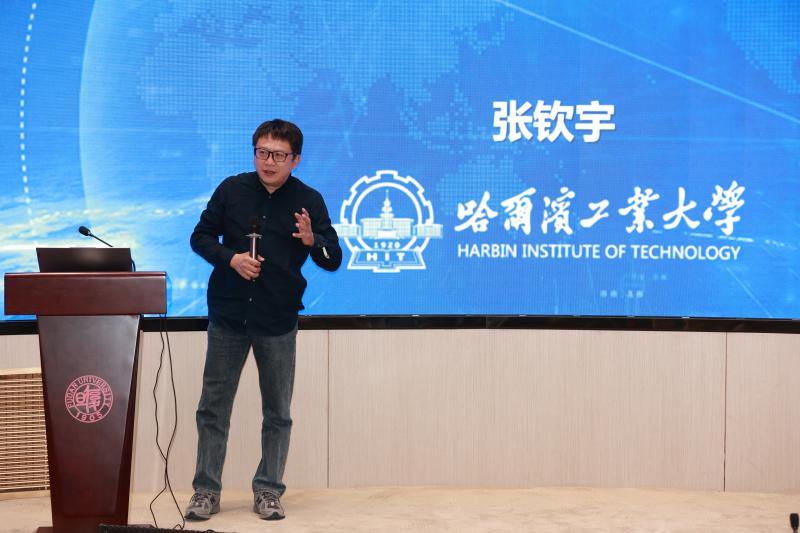
The last part of the forum was co-chaired by Professor Yang Yongjie of Nantong University and Professor Li Wei of the National Radio Spectrum Management/Monitoring Center. They respectively made wonderful speeches on the prospect and application of wide-area active base stations under the smart sky network, and the thinking and practice of satellite Internet interference control.
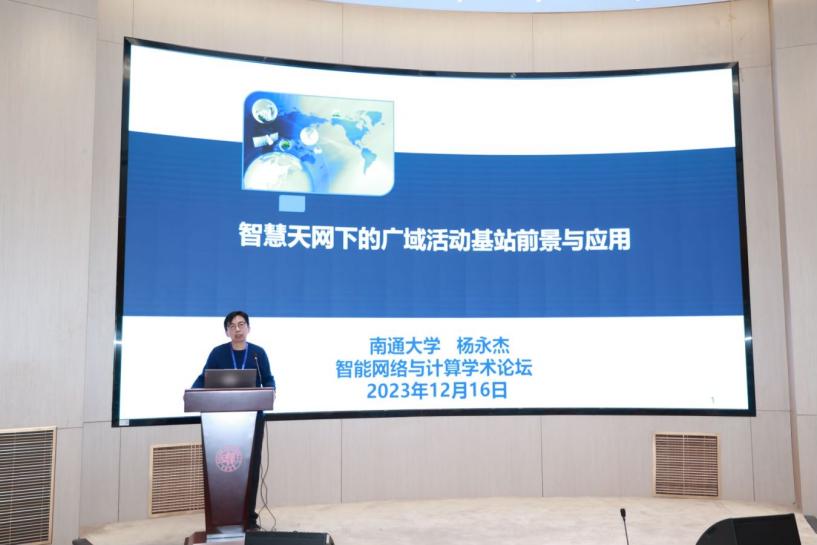
The forum not only provided a platform for participants to exchange ideas and share knowledge, but also pointed out the direction for future development in the field of intelligent networking and computing. The speeches of the experts and scholars were profound and simple, and the contents involved both theoretical depth and practical breadth, which triggered heated discussions among the audience. During the tea break, participants also conducted in-depth exchanges and discussions on related topics, further promoting the cooperation between academia and industry.
